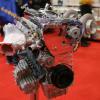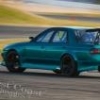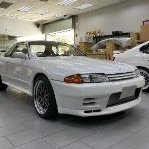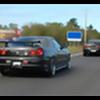Transporting a Car.
Announcements
-
Similar Content
-
Latest Posts
-
By Dose Pipe Sutututu · Posted
Yeah, I don't believe the M35 uses a deadhead system. -
Have you done your thinking backwards? 3 bar, 43.5 psi pressure drop being the presumed specification for an injector, means you need 3 bar upstream when they are firing into atmospheric pressure, and more upstream pressure than that when on boost (you add your boost to your rail pressure to maintain 3 bar across the injector) and you need..... less pressure upstream when you have vacuum in the manifold. So, presuming that you're idling at -10 psi, then you only need ~23 psi in the rail. I realise that I did not need to say all of that to you specifically Matt, once you'd realised your mistake. It's mostly there for complete clarity for others.
-
By Dose Pipe Sutututu · Posted
Have you reached out to the guys at Spool Imports? They are a Ross dealer, I can imagine they would have the rings just sitting on the shelf (I could be wrong). -
There's one for sale at Grand Auto Wreckers in Lonsdale (SA), for .... let's suggest the sum they're asking for will make you cry. You may have to embrace the idea of modifying the rear subframe to accept some other diff. You could probably find a way to wangle a shortnose into there, with a custom rear adapter and some sort of shenanigans to relocate the front mounts. This has probably already been done by others, so there might be some guidance available as to how easy/impossible it is, out there in the googles. But you possibly needn't restrict yourself to Nissan diffs if you're going to contemplate that. There are similarish Toyota diffs, possibly some Euro ones, possibly some Seppo ones.
-
The ball joint taper and arm taper have to match angle and diameter, but just doing the bushes is a much better option.....seems like the industry moved to "it is cheaper to replace the whole arm than take on the labour for changing this bushes", glad the aftermarket supports it
-






Recommended Posts
Create an account or sign in to comment
You need to be a member in order to leave a comment
Create an account
Sign up for a new account in our community. It's easy!
Register a new accountSign in
Already have an account? Sign in here.
Sign In Now